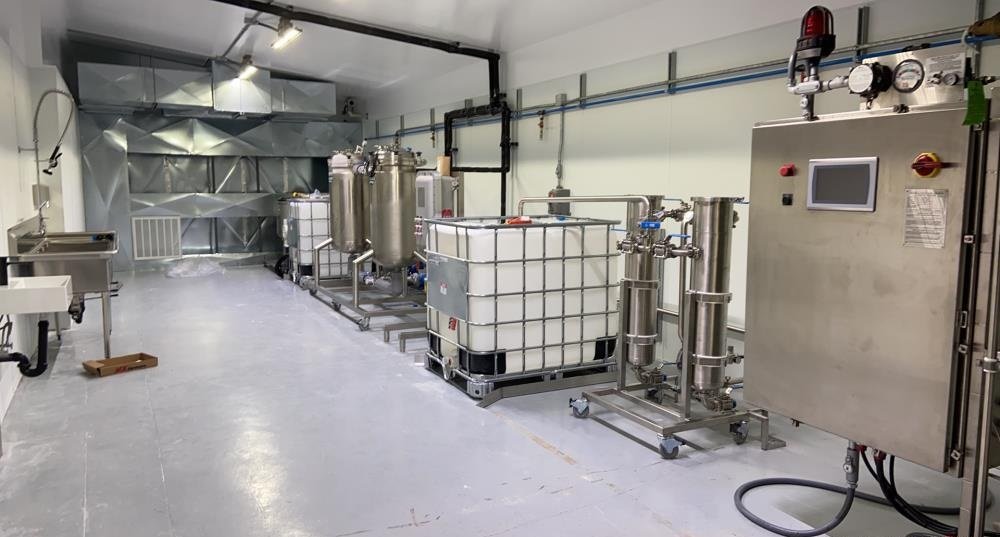Hydrocarbon extraction refers to the process of obtaining hydrocarbons from natural sources, such as crude oil and natural gas. This extraction is crucial for various industries, including energy production, petrochemicals, and manufacturing. In this context, hydrocarbon extraction equipment plays a vital role in efficiently and safely obtaining these valuable resources. This article will explore the different types of equipment involved in hydrocarbon extraction, their functions, and the technological advancements that have enhanced extraction processes.

Types of Hydrocarbon Extraction Equipment
The extraction of hydrocarbons involves a series of complex processes and specialized equipment. Below are the main types of equipment used in hydrocarbon extraction.
- Drilling Equipment
Drilling equipment is essential for accessing hydrocarbon reserves buried deep underground. The drilling rig, often equipped with advanced technologies, enables operators to drill vertical and horizontal wells. Key components include drill bits, drill pipes, and blowout preventers, which help ensure safety during the drilling process.The drill bit is designed to break through rock layers and reach the hydrocarbon reservoir. Various types of drill bits are available, including roller cone bits and diamond bits, each suited for different geological formations. Once the well reaches the desired depth, casing is installed to prevent the well from collapsing and to isolate the hydrocarbons from other formations.
- Production Equipment
Once hydrocarbons are extracted, production equipment facilitates their safe and efficient transfer to processing facilities. This category includes separators, compressors, and pumps.- Separators are used to separate crude oil, natural gas, and water from the well. By using gravity and mechanical means, these devices ensure that the extracted hydrocarbons are free from impurities before they are transported for refining.
- Compressors are crucial in moving natural gas from extraction sites to processing plants. They increase the pressure of the gas, allowing it to flow through pipelines efficiently.
- Pumps play a significant role in transporting liquids, such as crude oil and produced water, from the wellhead to storage tanks or treatment facilities.
- Processing Equipment
After extraction, hydrocarbons require processing to convert them into usable forms. Various types of processing equipment are used, including heaters, distillation columns, and heat exchangers.- Heaters raise the temperature of crude oil to reduce its viscosity, facilitating easier flow through pipelines.
- Distillation columns separate different hydrocarbon components based on their boiling points. This process is crucial for refining crude oil into gasoline, diesel, and other valuable products.
- Heat exchangers transfer heat between fluids without mixing them. This equipment is vital for energy efficiency in processing facilities, ensuring that heat recovered from one process can be used to heat another.
- Storage and Transportation Equipment
Proper storage and transportation of extracted hydrocarbons are essential to maintain quality and safety. Storage tanks, pipelines, and rail cars are the primary types of equipment used for this purpose.- Storage tanks are designed to hold crude oil and other hydrocarbons until they are ready for transportation. These tanks must meet stringent safety standards to prevent leaks and spills.
- Pipelines are the most efficient way to transport hydrocarbons over long distances. They are designed to handle high pressures and minimize the risk of leaks. Regular inspections and maintenance are essential to ensure their integrity.
- Rail cars are also used for transporting hydrocarbons, especially when pipelines are not available. However, this method comes with its own set of challenges, including safety concerns during loading and unloading.
Technological Advancements in Hydrocarbon Extraction Equipment
Advancements in technology have significantly improved the efficiency and safety of hydrocarbon extraction processes. Key innovations include:
- Automation and Control Systems
Modern equipment often incorporates automated systems that monitor and control various aspects of the extraction process. These systems can optimize production rates, enhance safety, and reduce the need for manual intervention. By using sensors and data analytics, operators can quickly respond to changes in conditions, minimizing risks and downtime. - Enhanced Oil Recovery Techniques
Enhanced oil recovery (EOR) techniques involve injecting substances such as water, steam, or carbon dioxide into a reservoir to increase pressure and improve hydrocarbon flow. Equipment designed for EOR, such as injection pumps and compressors, allows operators to maximize recovery rates from existing wells. - Environmentally Friendly Technologies
As environmental concerns grow, the hydrocarbon extraction industry is increasingly adopting eco-friendly technologies. This includes equipment that reduces emissions, minimizes water usage, and prevents spills. Innovations such as flare gas recovery systems capture and utilize gases that would otherwise be flared off, reducing greenhouse gas emissions. - Remote Monitoring and Diagnostics
Remote monitoring technologies allow operators to track the performance of extraction equipment from a distance. This capability enhances safety by enabling real-time diagnostics and maintenance planning, reducing the risk of accidents and equipment failures. - Advanced Materials
The development of advanced materials for equipment construction has improved the durability and performance of equipment. Corrosion-resistant alloys and composites extend the lifespan of components, reducing maintenance costs and improving safety.

Challenges in Hydrocarbon Extraction
While technology has greatly improved hydrocarbon extraction processes, several challenges remain:
- Environmental Impact
Hydrocarbon extraction can lead to significant environmental impacts, including habitat destruction, water pollution, and greenhouse gas emissions. Operators must implement best practices and comply with regulations to minimize these impacts. - Regulatory Compliance
The hydrocarbon extraction industry is subject to strict regulations at local, national, and international levels. Compliance with these regulations requires ongoing investment in safety measures and environmental protection. - Market Volatility
The prices of hydrocarbons are subject to fluctuations due to geopolitical factors, economic conditions, and technological advancements. This volatility can affect investment decisions and operational strategies within the industry. - Safety Concerns
The extraction of hydrocarbons involves inherent risks, including blowouts, leaks, and equipment failures. Ensuring the safety of workers and nearby communities is a top priority for operators, necessitating ongoing training and investment in safety equipment.
Hydrocarbon extraction equipment is vital for obtaining and processing the world’s energy resources. Through advancements in technology and best practices, the industry continues to evolve, addressing challenges while enhancing efficiency and safety. As global energy demands grow, the importance of this equipment will remain critical in shaping the future of energy production and consumption.
The role of these equipment extends beyond mere functionality; it encompasses a broader commitment to sustainability and environmental stewardship. Operators are increasingly tasked with finding innovative solutions that not only improve extraction processes but also mitigate the environmental impact of their activities. By balancing efficiency with responsibility, the hydrocarbon extraction industry can move toward a more sustainable future.















































